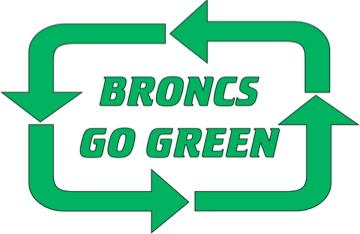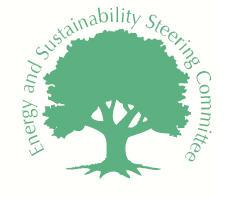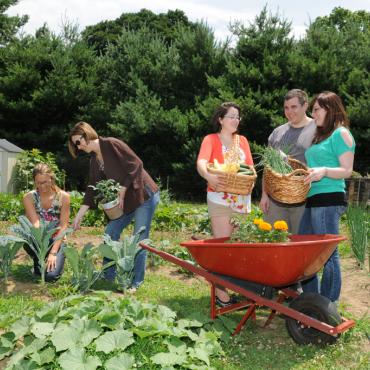
Green Campus Virtual Tour
Learn more about Rider’s sustainable initiatives. The stops on the virtual tour were researched and designed by Rider students enrolled in SUS 100: Introduction to Sustainability Studies during the Spring semester of 2013.

Recycling
Waste Management (WM) handles all waste and recycling hauling on Rider’s Lawrenceville campus. In September 2009, the Lawrenceville campus switched to single-stream recycling. Single-stream is a system that allows Rider to place all their recyclables–such as fiber (newspaper, office paper and cardboard) and non-fiber (plastics #1-7, glass, and aluminum) into a single container for subsequent collection, processing, and remarketing.
Gourmet Dining
Foodservice operations at Rider have gone “green” in many ways with the Gourmet Dining team as partners.
What CAN I recycle?
- Steel, tin & aluminum cans
- Plastic bottles & containers
- Paper
- Paper cardboard, dairy & juice containers
- Flattened cardboard & paperboard
- Glass bottles & jars
- DO NOT INCLUDE: Food waste, plastic bags, or polystyrene foam cups & containers.
Learn more about what you can recycle at Rider.
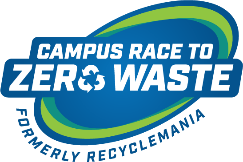
Campus Race to Zero Waste
Campus Race to Zero Waste is an eight-week, nationwide recycling competition among college and university campuses. Hundreds of schools compete to increase recycling rates and reduce waste accumulation. Rider University has participated in this competition since 2009. In Rider’s second year competing, we increased our recycling rate by 295%. The competition generally runs from February - April with weekly recycling rate reporting and ranking. To help Rider get ahead in Campus Race to Zero Waste, you can recycle all aluminum, plastics numbered 1, 2, and 5, cardboard, paper, and glass in appropriate marked containers. And as always, be sure to buy less and reuse items more often.
Bike Racks
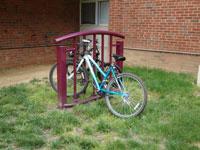
In an effort to promote environmentally friendly transportation, Rider has installed several bike racks on both campuses. These racks have been placed in convenient locations so that riders can safely park their bikes without worry. If there is an area of campus that needs a bike rack, email the Director of Sustainability at [email protected].
Water Bottle Refill Stations
Campus Sustainability Day 2009 was accompanied by the introduction of water bottle refill stations located around campus. Students, faculty & staff were able to receive free, cool, filtered water eliminating the need for single-use plastic water bottles. During subsequent years, additional water filtration units were installed in nearly all campus buildings. There are currently over 50 refill stations on the Lawrenceville campus. By the end of the Fall 2020 semester, the use of these stations on campus has collectively saved over 5 million bottles since installation.
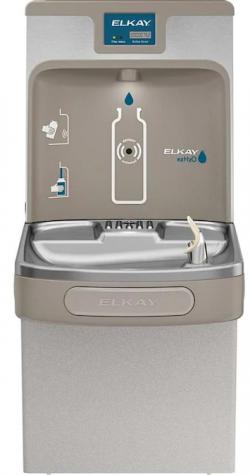
Clean Water Within Reach: Filter is NSF certified to help put cleaner, healthier water within reach by reducing lead and other contaminants.
Hands-Free Operation: The touchless, sensor-activated bottle filter is designed for easy use. There's no need to hold the bottle; just place and fill.
Real Drain: The basin includes a real drain system to help with drainage and eliminate standing water
See Bottles Saved: Exclusive Green Ticker (TM) informs user of the number of 20 oz. plastic water bottles saved from waste by using refillable bottles at the bottle filling station.
Antimicrobial Protection: Key plastic components on the unit have a special silver ion antimicrobial protection that inhibits the growth of mold and mildew.
Minimal Splashing: Bottle filler dispenses a clean, laminar flow of water so there is minimal splashing when filling reusable bottles and cups.
Renewable Energy
In keeping with the Carbon Commitment and Rider’s push to become carbon neutral by 2050, Rider began purchasing Renewable Energy Credits (RECs) in 2007. These Clean Energy Credits means that over 65% of Rider’s energy use is offset from a renewable source, in Rider’s case, national wind energy. This renewable energy is all a part of Rider’s effort to become a more sustainable campus and community.
Energy Star Appliances

Also in keeping with Rider’s Carbon Neutrality Plan, any new appliance purchased by Rider University is Energy Star certified. Energy Star, a government run certification program, means that the appliance simultaneously uses less energy while running more efficiently.
Energy Meters
In 2009, energy sub-meters were installed in most of the buildings on the Lawrenceville campus. These energy meters provide, in real-time, energy consumption by each building. They are meant to show when buildings are consuming exurbanite amounts of energy in order to find ways of reduction. They help to show which buildings are in need of improvement in order to be more environmentally friendly as well as demonstrate to students and staff the impact they have on the energy consumed throughout buildings on campus. The meters also measure the before and after energy use for a building energy efficiency upgrade.
Steven R. Beckett '74 and Sharon McDonald-Beckett Village (LEED Silver Certified)
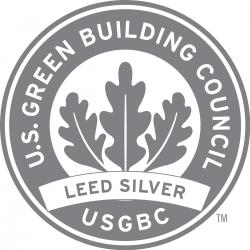
In 2007, ground was broken for Beckett Village. According to Rider News, it was planned as part of The Presidents Climate Commitment and has helped Rider step in the right direction with Green Building construction. All appliances in the halls are EnergyStar rated, buildings are super insulated and the concrete is made with recycled fly ash. Some features of this LEED Silver certified project include; low-flow fixtures used to reduce water waste, environmentally friendly paints, carpets, and cork flooring to reduce the production impact of the hall. More than 20% of the construction materials were purchased locally and at least 75% of the waste was recycled. Trees in the site were taken out using horses instead of trucks and machinery. LEED, Leadership in Energy and Environmental Design, Certification means that the building meets a set of standards set by the United States Green Building Council.
Lynch Adler Hall (LEED Gold Certified) & BLC Theater Addition
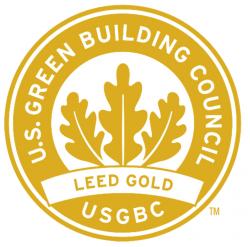
Beginning in the spring of 2010, Rider began two new construction projects on the Lawrenceville campus; an addition to the BLC Theater and a new academic building, Lynch Adler Hall. The multi-million dollar projects were completed in the summer of 2011. The new 21,000 sq. ft. academic building features 9 new classrooms, two seminar rooms, a multipurpose conference room and 16 university offices. The 10,000 square foot BLC Theater addition allows seating for 350 people and is a fully functional teaching and production theater complete with a production stage, screen and prop shop, and 1,500 square foot dance and rehearsal studio. The BLC Theater expansion was built with low-emitting materials, energy-efficient HVAC equipment, a white roof for heat reflection and regional construction materials. Lynch Adler Hall features an innovative green design, including a green roof, and uses sustainable building materials, earning it a LEED Certified Gold certification. All waste generated from both projects was recycled.
Furthering Sustainability
As part of Rider’s continued efforts to promote sustainability on campus several positions and educational forums have been introduced to educate Rider’s community about sustainability. Along with Rider’s “Green Film Series” which educates students, faculty, and staff about green causes promoted through film, Rider introduced a Sustainability Minor in the spring 2011 semester. This minor allows students with an interest in the environment to explore how sustainability can be applied to a variety of different disciplines and how it affects our world today.
Rider Green Acres (Rider University Organic Garden)

Rider’s Green Acres is an organic garden established in June 2011. The garden has gone through changes over the years and is currently used by faculty and staff on a first come, first served basis each growing season. The garden is located between the Joseph P. Vona Center and Alumni House, near the main gate. Garden sponsors and supporters include the Energy and Sustainability Steering Committee and Facilities Management at Rider University and Ortho-McNeil Jansseen.
Solar

Rider University, along with PSE&G and Alteris Renewables installed a 740kW solar panel array in the back field of campus behind the softball field and visible from Interstate 95. The installation of the solar field was done in the most environmentally friendly way possible: no trees were removed, no wetlands disturbed, and the grass under the panels is shade tolerant. Rider’s solar array is producing 920,000 kWh, or enough energy to power 92 homes, which is equivalent to: reducing CO2 emissions by 34,580,526lbs over the course of 25 years, planting 17,074 trees, taking 127.4 vehicles off the road each year, and eliminating the use of 74,902 gallons of gasoline each year. The solar field is a land lease through the PSE&G Solar4All program, meaning that the energy from the solar panels does not go directly to Rider; instead it is converted then goes into the grid. Rider benefits indirectly from the production of renewable energy and generates revenue from the land lease to be used for sustainability initiatives on campus.
Tri-Generation (Energy) Plant
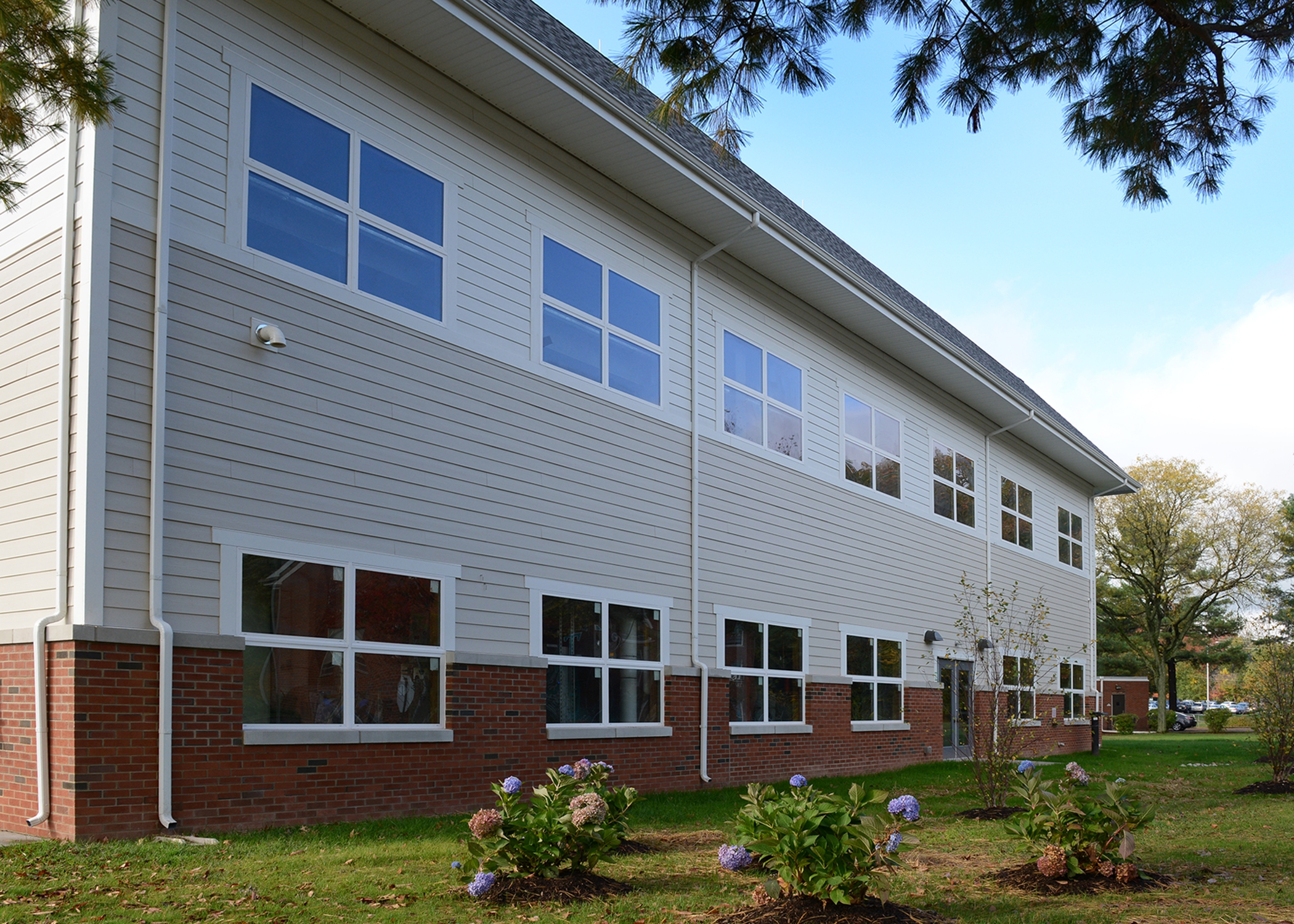
Rider’s Tri-Generation Energy Plant was built in 2014 and went online just as the 2014-2015 academic year began. The system uses natural gas to generate electricity as well as steam and chilled water for the academic quad. You may be more familiar with the idea of cogeneration, or “co-gen”. These plants use natural gas to generate electricity and steam. Our plant saves the university money, since it will reduce the amount of electricity we must purchase from the grid and uses energy that is usually wasted to heat and chill water. The greenhouse gas emissions from the plant are below those generated by outside fuel sources such as oil and coal and results in significantly reduced sulfur emissions. The plant provides object lessons in energy and sustainability for students in Physics, Environmental Science and Sustainability Studies.
EV Charging Station
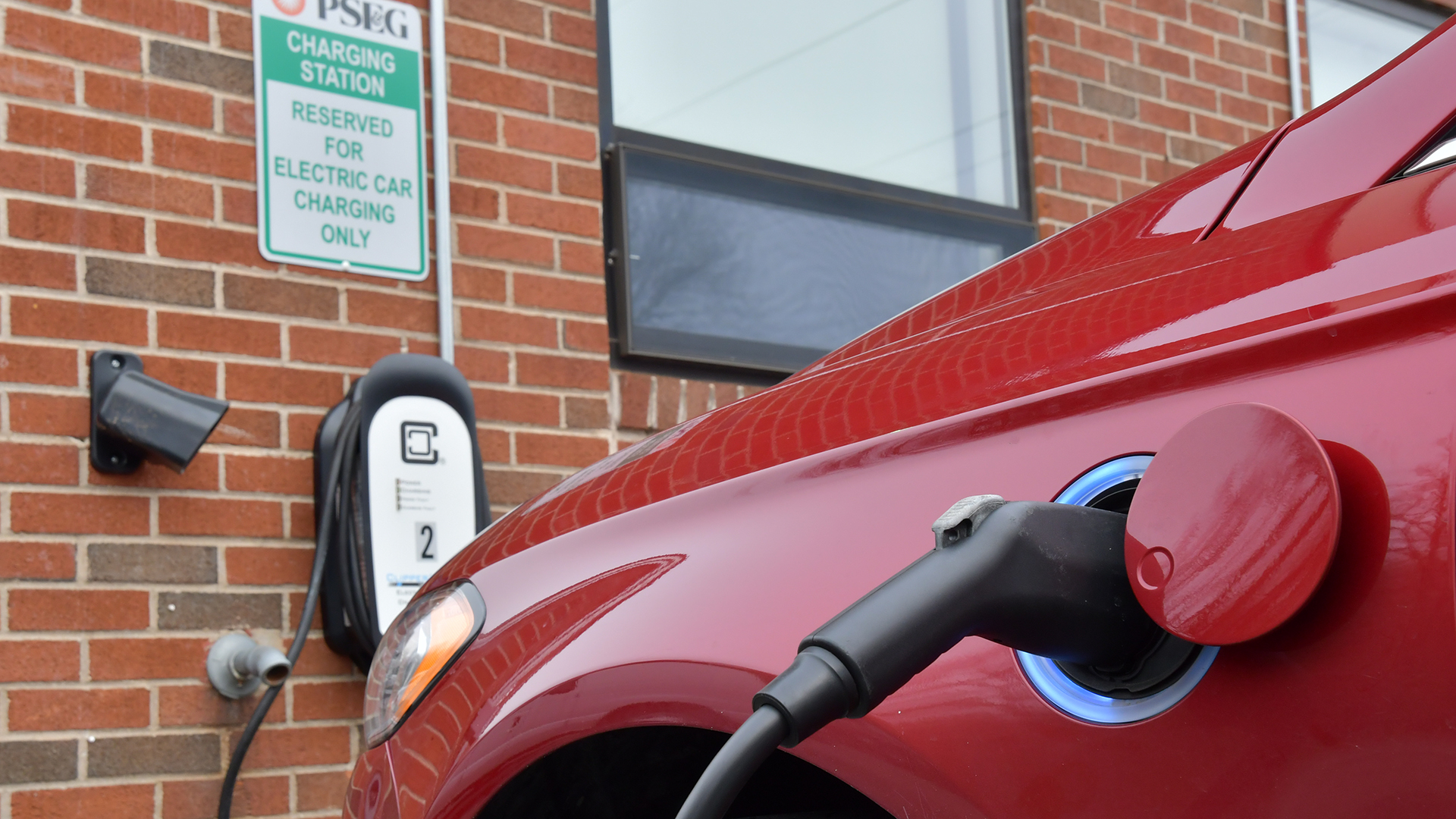
In 2018 Rider’s first bank of Electric Vehicle Charging stations were completed and it didn’t take long for them to get to work charging current faculty, staff and student vehicles. Since then, a second bank of chargers were completed and there have been over 30 accounts created for charging.
For more information about charging stations at Rider, please see these news stories:


